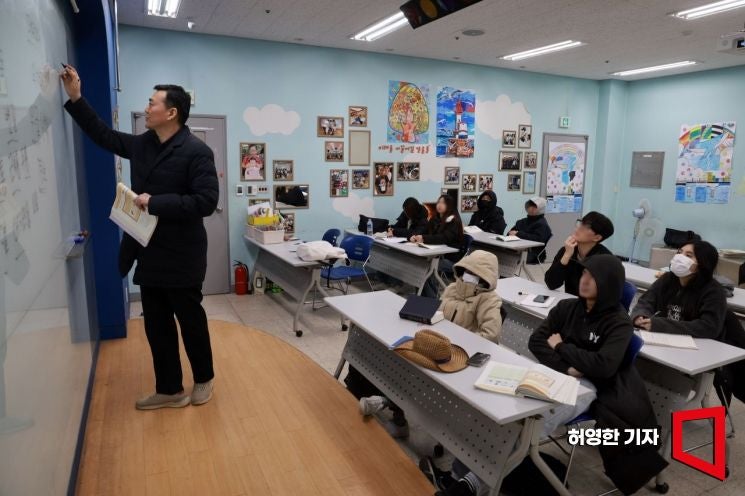
Why Multicultural Education Matters to Foreigners in Korea
Hello, international readers! If you're living in or planning to move to Korea, understanding multicultural education is crucial for navigating the social landscape here. With increasing numbers of multicultural families, this issue is more relevant than ever, affecting not just those involved but also the broader community.
As reported in recent news, the increasing international marriage rate in Korea is creating a surge of multicultural students in schools. However, many of these students face significant challenges, including language barriers and difficulty adapting to the Korean education system. Let's delve into the importance of this topic and how it relates to you.
🌏 What's happening in Korea? (Quick overview)
The number of multicultural students in Korea has reached over 20,000, accounting for about 4% of the student population in primary and secondary education. Despite this growth, many multicultural students struggle with the Korean language, which hampers their academic performance and integration into society.
💡 Why this matters for foreigners? (Impact analysis)
The academic struggles faced by multicultural students are reflective of broader societal issues. As a foreigner, understanding these dynamics can help you empathize and engage more meaningfully with multicultural families and their experiences in Korea, enhancing community cohesion and cultural exchange.
📌 How to take advantage of this? (Step-by-step guide, if applicable)
If you’re interested in making a positive impact, consider volunteering at local multicultural education centers or offering language tutoring. Engaging with these communities not only helps students overcome barriers but also enriches your own experience living in Korea.
🇰🇷 Understanding Korea's system (Cultural & bureaucratic insights)
Korea's educational system is deeply rooted in its cultural values, emphasizing academic success. However, multicultural students often receive insufficient support. Understanding the available resources, including multicultural centers and counseling services, can aid you in navigating these complexities.
🌟 Tips for foreigners living in Korea
Stay informed about educational policies that affect multicultural students. Join community groups or online forums where issues concerning multicultural education are discussed. Networking with other expatriates and locals can provide valuable insights and support.
🔮 What's next? (Future trends & additional insights)
As the number of multicultural students continues to rise, it is likely that more initiatives will be developed to support their educational needs. Keeping an eye on these developments can provide you with opportunities to get involved and contribute positively to the community.
🇰🇷 Learn Korean from this Article!
Improve your Korean language skills with these key phrases from the article:
🔤 Korean Phrase 1: "다문화학생"
🔤 Pronunciation: Damunhwa haksaeng
🔤 English Translation: "Multicultural student"
🔤 Usage Tip: Use this phrase when discussing students from multicultural backgrounds in educational settings.
🔤 Korean Phrase 2: "한국어 교육"
🔤 Pronunciation: Hangukeo gyoyuk
🔤 English Translation: "Korean language education"
🔤 Usage Tip: This phrase is useful when referring to programs that teach the Korean language, especially for foreigners or multicultural families.
🔤 Korean Phrase 3: "학교 적응"
🔤 Pronunciation: Hakgyo jeogeung
🔤 English Translation: "School adaptation"
🔤 Usage Tip: Use this phrase to talk about the process of students adapting to the school environment, especially in a multicultural context.
🙋 Essential FAQs for Foreigners
Can foreigners participate or apply?
Yes, there are opportunities for foreigners to engage with multicultural education programs through volunteering or teaching languages at local centers.
Do I need to know Korean for this?
While knowing Korean can be beneficial for direct communication, many organizations welcome English-speaking volunteers who can assist with tutoring or support services.
Where can I find official details?
Official information can be found on the Korean Ministry of Education website and local multicultural centers or community boards.
As the landscape of multicultural education evolves, staying informed and involved can help bridge cultural gaps and create a more inclusive community. We encourage you to reach out and learn more about the diverse experiences in Korea!
📱 Get the BeraKorean App & Stay Updated!
Want to improve your Korean skills and stay informed about life in Korea? Download the BeraKorean app for exclusive content:
- 📱 Android: Download on Google Play
- 🍎 iOS: Download on App Store
📺 Follow us on BeraKorean YouTube for Korean lifestyle & language content!
🌏 Visit berakorean.com for more updates, news, and insights on living in Korea.
🔗 Read the Original Korean Article
Want to dive deeper? Check out the original article here:
📢 Tags
#KoreaNews #LifeInKorea #ForeignersInKorea #KoreaOpportunities #KoreaLiving #LearnKorean #KoreanLanguage